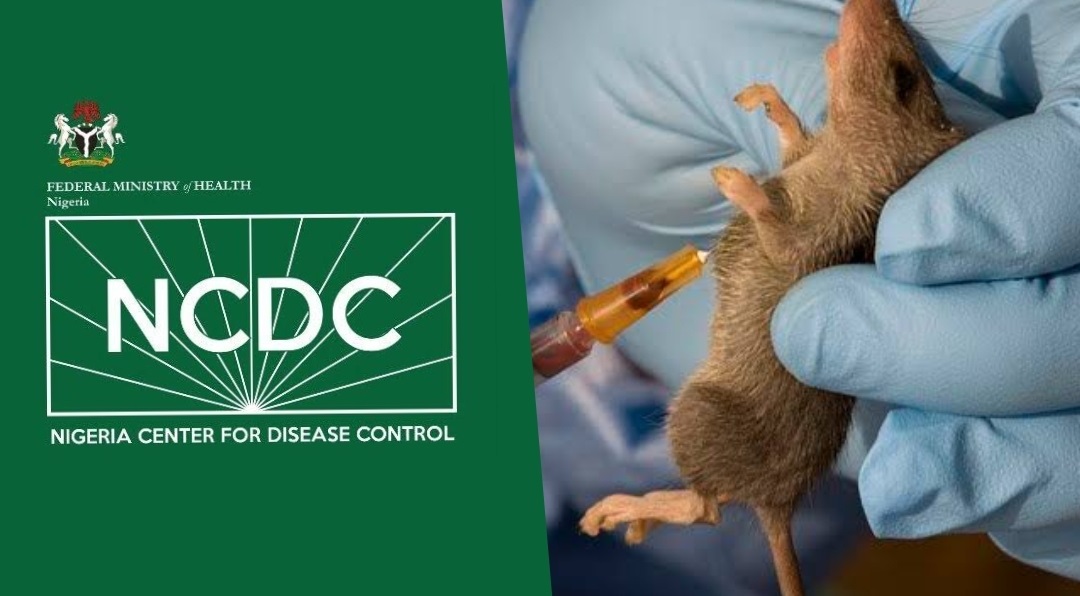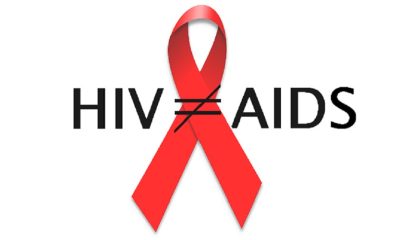Health
N120bn fake products destroyed in six months – NAFDAC

The National Agency for Food and Drug Administration and Control said it destroyed over N120bn worth of seized products from July to December 2024, in the six geo-political zones and the Federal Capital Territory.
This was as the agency assured Nigerians that adequate measures had been put in place to safeguard their health before, during and after the Yuletide season.
This was contained in the Yuletide message of the Director General of NAFDAC, Prof Mojisola Adeyeye, to Nigerians, in a statement signed by the agency’s Resident Media Consultant, Sayo Akintola, on Sunday.
Adeyeye emphasised the need to eat safe and stay safe during the festive period.
She reiterated the need for Nigerians to always procure food and drinks in outlets with identifiable addresses and locations to ease the agency’s track and trace obligation, adding that medicines and packaged food products that do not have NAFDAC number should be avoided. And when a product is too cheap, its most likely to be compromised.
Adeyeye said officers of the agency’s Investigation and Enforcement Directorate would continue the ongoing mop-up of substandard and falsified medicines and unwholesome food items from the markets across the country.
“Officials of the Agencys Investigation and Enforcement Directorate, Pharmacovigilance Directorate and Post-Marketing Surveillance Directorate are jointly on the field mopping up falsified medicines, fake wines and drinks and unwholesome food products that could endanger the health of the people during the festive season.
“The agency had stormed supermarkets in the big cities across the country such as Lagos, Port Harcourt, Aba, Ibadan, Kaduna, and the FCT, to apprehend manufacturers and merchants of fake drugs and unwholesome foods, while products running into billions of naira have been confiscated in the last three months of renewed enforcement.
“On Wednesday, December 11, 2024, the agency destroyed expired, unregistered drugs worth N11bn in Ibadan, Oyo State. In November, the Agency seized N300m worth of fake medicines during a raid of Tyre Village, Trade Fair Complex, Lagos State. Officers of the agency also busted counterfeit alcohol packaging centres and seized items worth N2bn in Lagos. This followed reports of illegal revalidation of expired alcoholic beverages at the Trade Fair Complex in Lagos,” it noted.
It said the agency also confiscated bags of repackaged and expired rice worth N5bn, and sealed a factory and eight shops where counterfeit rice are packaged and distributed in Nasarawa State.
It added that over 1,600 bags of counterfeit rice worth N5bn were confiscated in Wuse and Garki markets, Abuja.
Adeyeye maintained that only safe, quality, and wholesome food products should be available to Nigerians during the Yuletide and beyond.
She specifically instructed that those counterfeiting popular brands of rice should be arrested and their products removed from the market.
It stated that a total of 150 shops at Eziukwu Market in Aba, a suburb of Abia State, were shut down following an operation by the agency.
“As the mop-up operation was going on in the FCT and Nasarawa State, NAFDAC was carrying out a two-day operation in the Aba market on December 16 and 17, 2024. During the operation, the agency uncovered large-scale production and distribution of fake and expired goods, including beverages, carbonated drinks, wines, spirits, vegetable oils, and revalidated food items such as noodles, powdered milk, and yoghurt with a market value of N5bn.
“The agency on Wednesday, December 11, 2024, also destroyed expired, unregistered, counterfeit, and smuggled products valued at N10,991,458,374.60.
The destroyed items, collected from five states in the South-West Zone (excluding Lagos) and Kwara State in the North Central Zone due to its proximity, were incinerated in Ibadan.
“In total, over N120bn worth of seized products were destroyed by the agency in six months (July-December) in the six geo-political zones and FCT.
“The DG, however, stated that the agency would not rest on its oars until the merchants of death are forced out of operation, warning that the agency would make it hard for them to operate freely and endanger the health of innocent consumers. The coming year will be tough for the people that prioritise money over the well-being of their fellow human beings by compromising quality of medicines and food products in the country,” the statement noted.
Health
SAD! Lassa Fever Claims 127 Lives Across 18 States in Nigeria(List)

The Nigeria Centre for Disease Control and Prevention (NCDC) has reported a sharp rise in Lassa fever cases, with 127 deaths confirmed across 18 states as of April 6, 2025.
According to the agency’s latest situation report, 674 people have tested positive for the virus out of 4,025 suspected cases recorded between January and early April.
The current Case Fatality Rate (CFR) stands at 18.8%, slightly higher than the 18.5% recorded during the same period in 2024, indicating a worrying upward trend.
The most affected states include Taraba (31 deaths), Ondo (26), Edo (17), Bauchi (12), and Ebonyi (11). Other states with reported fatalities are Gombe (7), Kogi (4), Benue (4), Nasarawa (4), Plateau (5), Kaduna (2), and one death each in Enugu, Delta, Cross River, and Ogun.
The report also highlights that 71% of confirmed cases were concentrated in Ondo (30%), Bauchi (25%), and Edo (16%), with the remaining 29% spread across 15 other states. The virus has now reached 93 local government areas nationwide.
Lassa fever is a viral haemorrhagic illness transmitted mainly through exposure to food or household items contaminated by infected rodents, particularly the multimammate rat. It can also spread through direct contact with the blood, urine, feces, or other bodily secretions of an infected person.
The disease predominantly affects people between the ages of 21 and 30, with a male-to-female ratio of 1:0.8, according to NCDC data.
In response to the outbreak, the NCDC has activated the National Lassa Fever Multi-Partner, Multi-sectoral Incident Management System to strengthen surveillance, case management, risk communication, and coordination efforts at all levels.
As the country continues to battle the spread of the virus, the NCDC is urging citizens to maintain proper hygiene, store food in rodent-proof containers, and seek immediate medical attention if symptoms such as fever, headache, sore throat, chest pain, or vomiting occur
Health
FG identifies 1,277 persons for monitoring as Lassa fever kills 122

The Nigeria Centre for Disease Control and Prevention has listed 1,277 persons for follow-up over the possibility of being infected with Lassa fever. This follows the centre recording 659 confirmed cases out of 3,779 suspected cases and 122 deaths in 13 weeks (from January to March 30, 2025).
A report obtained from the NCDC on Friday indicated that no fewer than 18 states across the country have recorded Lassa fever cases, with Ondo, Bauchi, and Edo being the most affected.
The report partly reads, “Cumulatively, in week 13 of 2025, 122 deaths have been reported, with a Case Fatality Rate of 18.5%, which is lower than the CFR for the same period in 2024 (18.7%).
“In total for 2025, 18 states have recorded at least one confirmed case across 93 Local Government Areas. Seventy-one per cent of all confirmed Lassa fever cases were reported from these three states (Ondo, Bauchi, and Edo), while 29% were reported from 15 other states with confirmed Lassa fever cases. Of the 71% of confirmed cases, Ondo reported 30%, Bauchi 25%, and Edo 16%.
“The predominant age group affected is 21-30 years (Range: 1 to 94 years, Median Age: 30 years). The male-to-female ratio for confirmed cases is 1:0.8. The number of suspected cases increased compared to that reported for the same period in 2024. No new healthcare worker was affected in week 13. The National Lassa fever multi-partner, multi-sectoral Incident Management System (IMS) was activated to coordinate the response activities at all levels.”
The report shows that the contacts under follow-up number 1,277, while the contacts that have completed follow-up total 1,448.
According to the NCDC, the disease has affected 20 healthcare workers in eight states so far this year.
Lassa fever is an acute viral haemorrhagic fever caused by the Lassa virus. The natural reservoir for the virus is the multimammate rat (also known as the African rat), although other rodents can also act as carriers.
The public health institute stated that Lassa fever cases occur year-round, with peak transmission periods typically from October to May.
Health
WHO calls for countries to address disruptions to TB services

In the wake of massive cuts in US funding, the World Health Organization (WHO) today called on global health leaders, donors, and policymakers to protect and maintain tuberculosis (TB) care and support services around the world.
In a statement issued ahead of World Tuberculosis Day (March 24), the WHO said the “drastic and abrupt” cuts to global health funding threaten to reverse gains made in global efforts to combat TB, which remains the world’s deadliest infectious disease. Those efforts have saved an estimated 79 million lives worldwide since 2000, the organization said.
“The huge gains the world has made against TB over the past 20 years are now at risk as cuts to funding start to disrupt access to services for prevention, screening, and treatment for people with TB,” said WHO Director-General Tedros Adhanom Ghebreyesus, PhD. “But we cannot give up on the concrete commitments that world leaders made at the UN General Assembly just 18 months ago to accelerate work to end TB. WHO is committed to working with all donors, partners and affected countries to mitigate the impact of funding cuts and find innovative solutions.”
USAID cuts have crippled TB control efforts
While the statement does not specifically mention the US Agency for International Development (USAID), the Trump administration’s freeze of USAID funding, and the subsequent canceling of thousands of contracts issued by the agency, have left a gaping hole in funding for TB prevention, screening, and treatment services. The US government has been the leading bilateral donor to global TB control efforts, contributing $200 million to $250 million annually—roughly one quarter of international donor funding for the disease.
The WHO said 27 countries are facing crippling breakdowns in their TB response, with the biggest impact seen in high-TB burden countries in Africa, Southeast Asia, and the Western Pacific. Among the services that have been disrupted are diagnosis, active case finding, screening, and contact tracing, and those disruptions are resulting in delayed detection and treatment and increased transmission risk. Drug supply chains, laboratory services, and data and surveillance systems have also been undermined.
A recent update from StopTB Partnership, which works on TB response with more than 2,000 partners in 100 countries, provides some detail on the services affected by the USAID funding cuts. In Cambodia, active case finding has halted in half the country, resulting in 100,000 people missing TB screening and 10,000 cases of drug-susceptible (DS)-TB going undetected. In Kenya, sputum sample transport once supported by USAID has halted, affecting the diagnosis of DS- and drug-resistant (DR)-TB. In India, USAID-funded TB screening projects in vulnerable groups have stopped.
The huge gains the world has made against TB over the past 20 years are now at risk as cuts to funding start to disrupt access to services for prevention, screening, and treatment for people with TB.
Those are just three of dozens of examples. In a news release today, StopTB Partnership Executive Director Lucica Ditiu, MD, echoed Tedros’s call for action.
“People with TB need us,” Ditiu said. “We have to remain strong, and we can never ever give up the fight. Through innovative, global and national efforts and standing together, we will be able to achieve these targets of ensuring TB prevention, treatment, and care are accessible to all.”
TB was responsible for an estimated 1.25 million deaths in 2023, according to the WHO’s most recent annual report. An estimated 8.2 million people were newly diagnosed with the disease—the most cases in a year recorded by the WHO since it began global TB monitoring in 1995. High-burden TB countries have only recently begun to recover from the disruptions caused by the COVID-19 pandemic, which the WHO estimates resulted in 700,000 excess TB deaths.
Cuts exacerbate funding shortfalls
As the WHO notes, the funding cuts come amid what was already a shortfall in funding for global TB control efforts. In 2023, $5.7 billion was available for TB prevention, diagnostic, and treatment services in low- and middle-income countries, but that’s only 26% of the 2027 target goal of $22 billion. TB research is receiving just one fifth of its 2022 target of $5 billion. Cuts to US funding are only going to exacerbate the problem.
In a joint statement issued earlier this week, Tedros and the Civil Society Task Force on Tuberculosis called on countries to take urgent action to prevent any disruption to TB services, ensure domestic resources to sustain equitable and essential TB care, and safeguard essential TB drugs, diagnostics, care, and social protection coverage for TB patients. They also urged the establishment of national partner platforms that would bring together public and private sectors, civil society, nongovernmental organizations, professional societies, and donors to maintain momentum against TB in affected countries.
“This urgent call is timely and underscores the necessity of swift, decisive action to sustain global TB progress and prevent setbacks that could cost lives,” said Tereza Kasaeva, PhD, director of WHO’s Global Programme on TB and Lung Health, in today’s WHO news release.
-

 Metro19 hours ago
Metro19 hours agoGunmen storm University of Benin teaching hospital, kill doctor
-

 Metro19 hours ago
Metro19 hours agoFCTA destroys 601 motorbikes over violations
-

 News11 hours ago
News11 hours agoAlleged money laundering: EFCC produces Aisha Achimugu in court
-

 News19 hours ago
News19 hours agoJust in: FG declares tomorrow public holiday
-

 News12 hours ago
News12 hours agoJUST IN: Major General Paul Ufuoma Omu Rtd, dies at 84
-

 News12 hours ago
News12 hours agoTinubu hails Dangote’s World Bank appointment
-

 News15 hours ago
News15 hours agoSAD! Professor’s son takes own life inside varsity staff quarters
-

 News19 hours ago
News19 hours agoFull list: FG approves N110bn to rehabilitate medical schools 18 institutions


















